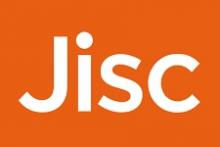Cambridge scientist 'breaks up the old-fashioned academic paper'

Alex Freeman
Documentary-maker Alex Freeman never imagined she would create a tool that could overhaul the structure of academic publishing, writes Faye Holst
After her postgraduate doctoral degree on wing patterns in butterflies, Freeman spent 17 years filming and producing science and wildlife programmes such as Bang Goes the Theory and Trust Me, I’m a Doctor.
Then, four years ago, she returned to academia, leading a team of scientists at the University of Cambridge.
‘I was really shocked to learn about the pressures my team of post doctoral researchers were under,’ she said. ‘I had heard about the reproducibility crisis and the fact that a significant proportion of research can’t be replicated due to lack of clarity of the methodology or because of chance results being treated as a robust finding, but never realised the extend of the underlying systemic issues in scientific publishing.’
She explains: ‘To publish research in a journal, academics need to find a narrative that neatly makes the data fit a theory and bundle that up in one single paper. But research is not a linear thing. The huge amount of work that goes into the research and the thought processes of what did or didn’t work are all part of scientific practice. High-impact papers often just tell the success story, leaving out the many failings that are part of the truth.’
Another issue with scientific publishing is that success in research (and, often, subsequent career progression) is measured by the number of people that read or cite a particular paper. This is another incentive for scientists to create a simplified narrative, written in a way that is most likely to reach the general public. Granular and detailed reporting of methodologies and underlying data (especially ‘messy’ data) are often left out.
Freeman adds: ‘Currently there just isn’t a way to publish this primary research knowledge - and that’s why I felt I needed to come up with a new way of disseminating and reporting research findings.’
Breaking up the old-fashioned academic 'paper'
Over the past two years, Freeman has been working on Octopus, an alternative publishing model that divides the various elements of publishing into eight different steps. This model allows for all the complexities and failures that are part of research to be published as part of the final output. Researchers will no longer have to cram all their work, often accrued over many years, into simplified, easy-to-read articles.
Freeman says: ‘Each of these mini publications will be publishable instantly, rather than submitted for peer review and selected by editors first. This way, research can be instantly in the public domain to be both reviewed and rated by all, speeding up research and solving some of the problems of the existing peer review process. The model will also credit researchers for their individual contributions and offer a tangible solution to the reproducibility crisis.’
For instance, Octopus allows for people who are specialists in research design to publish stand-alone protocols, those who have collected data to publish it (regardless of the size of the data), and for researchers specialised in analysing data to publish statistical analyses of data published by others. Each of these publications would be reviewed independently. This creates quality control through greater collaboration, and specialisation related to each step.
The pandemic has highlighted the need for a revised system, says Freeman: ‘The demand for a more diversified publication system has come to the fore in the global rush to understand and treat COVID-19. Researchers need to share their work quickly, but there is no real infrastructure beyond putting content on preprint servers – no formal quality control or ratings.’ On Octopus, by contrast, researchers could be sharing their work and findings instantly, and others reviewing it and quality-rating it immediately and openly.
Credible alternative
A prototype of the platform is set to be launched in September, once it has been pre-seeded with open access material from CORE – the world’s largest open access repository, hosted by Jisc. Some might believe Octopus could replace journal publishing, but Freeman is keen to point out that ‘Octopus is not set up to put publishers out of business’. She explains: ‘We still need editorialised and easy-to-read summaries of research findings. Journals could play an important role as disseminators and become interpreters of what’s happening on the primary resource record from Octopus. For instance, they could create well-written updates for the large audience that doesn't want to trawl through pages and pages of methodology.
‘I want people to move away from limiting research to a linear narrative. I’ve spent all my working life creating narratives and they are incredibly powerful, but they're powerful in a way that isn't necessarily good for scientific communication. Science shouldn’t say “believe what I tell you”, it's about showing all the things you haven’t thought of. That's a very different kind of communication and one that encourages critical thinking.’
In the words of American inventor Thomas Edison: ‘Just because something doesn't do what you planned it to do doesn't mean it's useless.’
A demo of Octopus is now available to try: demo.science-octopus.org. Alexandra Freeman welcomes feedback.
• Faye Holst is a media and content editor at Jisc. Octopus is supported by the Reproducibility Network that is partly funded by Jisc.









